Dairy-Free Recipes For Baby Led Weaning & Toddler
Table of Contents
The Nutritional Value of Excluding Dairy from Breakfast for Babies and Toddlers
Dairy products have long been a staple in many breakfast routines, providing a source of calcium and protein. However, in recent years, there has been an increasing trend towards excluding dairy for babies and toddlers. This shift can be attributed to various factors, including allergies, intolerances, and dietary choices. Let's explore the nutritional value of excluding dairy from breakfast meal ideas for these young ones.
Firstly, dairy-free breakfast options is an easy way to offer essential nutrients for growing babies and toddlers. Many milk alternatives such as fortified plant-based milks (e.g., soy, almond, oat) are now readily available in the market. These alternatives often come fortified with calcium, vitamin D, and other essential minerals, providing a suitable alternative to dairy milk. Furthermore, incorporating other calcium-rich foods into breakfast, such as fortified cereals or leafy greens, can help ensure adequate calcium intake.
Excluding dairy from breakfast can be beneficial for babies and toddlers with allergies or intolerances. Cow's milk protein allergy is one of the most common food allergies in infants, and symptoms can range from mild to severe. By eliminating dairy from their morning meal, you can provide a safe and comfortable start to the day, reducing the risk of allergic reactions.
Additionally, you may choose to exclude dairy from your children's diet due to dietary preferences, such as veganism or lactose intolerance. While it is essential to compensate for the nutrients typically found in dairy, a well-balanced breakfast without dairy can still provide an array of important vitamins and minerals. For protein, options like whole-grain toast with nut butter or chia seed pudding made with plant-based milk can offer substantial alternatives. Fruits, vegetables, and whole grains can contribute to the necessary fibre and antioxidant intake.
However, it is crucial to consult with a healthcare professional or a registered dietitian before making any dietary changes for babies and toddlers. They can provide specialised guidance and ensure that nutritional needs are being met while excluding dairy.
So, excluding dairy from breakfast for babies and toddlers can still offer adequate nutrition by incorporating alternative calcium sources and focusing on a well-balanced breakfast. Whether due to allergies, intolerances, or dietary choices, there are various dairy-free options available that provide the necessary nutrients for a healthy start to the day for the entire family.
Here are my dairy-free breakfast recipes:
Applesauce fritters are an excellent finger food option for baby-led weaning as they are soft, easily manageable, and packed with flavour. Try for breakfast!
An easy dairy free almond flour banana pancake recipe from 6 months old. A great easy breakfast that you could serve with plain yogurt and fresh berries.
A great recipe if you need a make ahead store cupboard porridge mix! Try with an almond milk for a nutritious plant based alternative porridge recipe.
With only four ingredients and no added sugar, these baked cinnamon pinwheels provide a nutritious option for little hands. A quick snack or breakfast recipe.
Introducing my home made no-sugar granola powder made with oats, rye flakes, nuts and seeds. A great breakfast idea that is delicious for the whole family.
This breakfast bar is similar to a porridge oats bar but without using eggs and no added banana. Perfect finger food for BLW and packed with quinoa protein.
My apple fritters (similar to an apple pancake) are made with ground oats, grated apple, cinnamon (can be left out), and oat milk, with no added sugar.
Does a BBQ baked banana bring back memories for you too? This is such a healthy snack or dessert that can be served with coconut, strawberries and more!
The Dairy-Free Advantage for Babies and Toddlers at Lunchtime and Dinnertime
Ensuring the health and well-being of our little ones is every parent's top priority. As we navigate the realm of introducing baby food/solid foods to our babies and transitioning our toddlers to a varied diet, a dairy-free approach to their meals can bring numerous benefits. By embracing dairy-free lunches and dinners, we can provide our children with optimal nutrition, reduce the risk of allergies, and foster healthy eating habits for all your family meals.
One of the key advantages of dairy-free meals for babies, toddlers and older kids too is the ability to offer a wider range of nutrient-dense options. While dairy products can be a valuable source of calcium, they are not the only way to support our children's bone development. By excluding dairy, we can explore alternative sources such as leafy greens, fortified non-dairy milks, and calcium-enriched foods. This diverse palette encourages the consumption of different vitamins and minerals, ensuring our little ones achieve a well-rounded diet.
Moreover, dairy allergies and lactose intolerance are common concerns for infants and young children. Switching to dairy-free meals reduces the risk of uncomfortable digestive issues and allergic reactions. By avoiding dairy, we create an opportunity to explore plant-based protein sources like legumes, tofu, and quinoa, which can provide essential amino acids, promoting growth and development.
By embracing dairy-free lunches and dinners, we can also cultivate healthy eating habits at an early age. Many dairy products are high in saturated fats and added sugars, which can contribute to obesity and cardiovascular issues. By steering clear of dairy, we encourage the consumption of fresh fruits, vegetables, whole grains, and lean proteins, which will establish a foundation for a balanced diet and reduce the risk of chronic diseases later in life.
Dairy-free meals for babies and toddlers allow us to embrace innovation and experiment with exciting flavours. This encourages children to become adventurous eaters as they grow, making them more willing to explore a diverse range of foods in the future. By introducing them to various flavours and textures at an early age, we instil a lifelong love for healthy, nutritious meals.
Opting for dairy-free lunches and dinners for babies and toddlers offers tremendous benefits. From increased nutritional variety to reducing the risk of allergies and promoting healthy eating habits, this approach ensures our children receive the best start in life. By embracing dairy alternatives, we provide the foundation for their physical and mental growth, while encouraging a lifelong love for nourishing foods.
Take a look at my recipe suggestions for lunch and dinnertime here:
This is a great way to use up leftover turkey from your Christmas roast dinner. A lovely way to use up the meat and include your baby within the festive food.
These stuffing muffins are soft and packed with flavours - great for baby and toddler. They can be made ahead of time and frozen for the festive season.
This is a very quick curry recipe using leftover cooked chicken. A fun way to serve a curry to your baby from 6 months old. Great for the whole family too!
My parsnip puree recipe is a great option for babies and toddlers. You can customise by adding different fruit and veggies to make a yummy meal for baby.
This is a yummy, quick and easy creamy coconut milk pasta with tomato pasta recipe for baby and toddler. A great vegetarian that the whole family can enjoy.
This is actually a vegan kidney bean curry recipe is perfect for baby, toddler and the whole family too. A great plant based/dairy free dinner or lunch.
This lentil patty recipe is a great way to serve soft, easy to digest lentils to baby for baby-led weaning. A great finger food option for baby and toddler.
This is a yummy sweetcorn fritter recipe - great for baby and toddler. An appealing recipe packed full of flavour and texture and ideal for a lunch or snack.
This is an easy to prepare and cook lentil soup for a baby-led weaning lunch or dinner recipe. A great nutritious complete meal for the whole family too.
If you are looking to introduce chicken to your baby for the first time, try this yummy chicken drumstick recipe. Great for older babies and toddlers too!
These courgette fritters are the perfect finger food for baby-led weaning, easy for little hands. Packed with vitamins and minerals and high water content.
This is a quick and easy baked avocado and banana baby-led weaning recipe for baby and toddler! Great for on the go weaning and the perfect finger food!
Simple crudites with a dip is a great veggie recipe for baby, toddler and the whole family. Requires minimal preparation and cooking time with fave veggies!
This is a great four ingredient tater tot recipe great as a finger food for baby or a yummy side for chicken nuggets or fish fingers. Baked not fried!
A yummy carrot soup recipe for baby, toddler and older kids too - a great mid week meal. Carrots are naturally sweet and packed with vitamins and minerals.
This is a great gluten free chickpea pasta sauce for baby and toddler. A quick recipe to make and store in the freezer in portions for lunch or dinner.
This is the perfect recipe for the cold winter months. Using basic ingredients, this easy 4 ingredient potato soup recipe is perfect for baby led weaning.
A delicious chicken korma in a slow cooker recipe that is great for the whole family. It is a mild, creamy curry combining maximum flavour with minimum fuss!
My Croque Monsieur is a great vegan/dairy free recipe for babies and toddlers. It's a variation on a toasted cheese sandwich. Perfect for lunch boxes too
No time to cook? This slow cooker does all the hard work for you, and produces a really tasty chicken thighs curry recipe! Perfect for the whole family.
This is a great one pot recipe suitable for lunch or dinner for baby or the whole family. My carrot and lentil soup is lightly spiced with cumin and coriander.
My refried beans recipe for baby-led weaning creates a consistency that's easy for babies to handle and chew. A yummy recipe for baby and the whole family!
This classic minestrone Italian soup is an excellent choice for baby-led weaning. A yummy hearty meal that is perfect for the current season and winter months.
This is a great chicken satay slow cooker recipe for tender, moist chicken. Ideal for those busy weeknights and perfect from 6 months old and the whole family.
A yummy lamb curry in a slow cooker recipe that is incredibly easy to make, making it a delicious mid-week meal or Saturday night dinner for the whole family.
This beef and noodles slow cooker recipe is very quick to prepare, results in tender beef and is perfect for a mid-week meal option for the whole family.
My easy chickpea and coconut slow cooker curry recipe is a great vegan and dairy free meal idea to feed the whole family. Great for batch cooking too.
An easy throw-it-all-in slow cooker chicken spaghetti recipe that is tasty and also convenient for those week night dinners for baby and the whole family.
You have to try this aubergine (eggplant) bhaji curry recipe! Perfect for babies who have never tried aubergine before. A great dairy free/vegan curry recipe.
A dairy free/vegan carrot and courgette soup recipe that packs in the veggies to make a really healthy and tasty soup. Great for batch cooking for the freezer.
This peanut butter and raspberry bento box recipe is really fun and includes a mini tortilla, instead of the usual bread option, and other favourites!
This is a great on-the-go, make-ahead lunch or snack recipe using butter beans that is sure to be a winner in your home! Serve with breadsticks and crudites.
A delicious lunch for your little one! All the elements of their favourites with a twist on traditional pizza but in a bento box! Add in some fresh fruit.
A fun Easter bunny bento box recipe for your little one! Packs a punch with vitamins and minerals, all in a sandwich lunch! Quick, convenient and simple too!
This must be my favourite pesto recipe that I have made deliciously dairy free! This is an ideal pesto pasta bento box for lunchtime for your little one!
The Benefits of Dairy-Free Snacks and Desserts for Babies and Toddlers
While dairy products have long been considered a staple in a child's diet, there are several benefits to exploring dairy-free alternatives for the little ones.
One of the main advantages of dairy-free snacks and desserts is that they cater to children with lactose intolerance or dairy allergies. Many infants and toddlers struggle with digesting lactose, the sugar found in milk, which can cause discomfort, bloating, and even digestive issues. By offering dairy-free options such as baby finger foods, parents can provide their children with safe and satisfying snacks that alleviate these symptoms.
Dairy-free snacks and desserts and sweet treats open up a world of nutritional variety for babies and toddlers. Many dairy-free alternatives are made from nutrient-rich plant-based sources, such as nuts, seeds, and fruits. These alternatives often provide a broader range of vitamins, minerals, and antioxidants, which can contribute to a healthy diet and support growth and development.
Introducing dairy-free snacks and desserts early in a child's life can help to cultivate diverse taste preferences. By incorporating various flavours and textures, you can expose your little ones to a wider range of foods, helping to expand their palate and encourage a love of nutritious eating. This can be especially beneficial for children as they grow and develop, as it sets the stage for a lifetime of balanced and adventurous eating habits.
Another advantage of dairy-free options is that they can be more environmentally friendly. The dairy industry is associated with significant greenhouse gas emissions and water consumption. By opting for dairy-free snacks and desserts, parents can make a positive impact on the planet, teaching their children the importance of sustainable choices from an early age.
There are numerous benefits to incorporating dairy-free snacks and desserts into the diets of babies and toddlers. From addressing lactose intolerance to expanding taste preferences and promoting sustainability, these alternatives offer a wealth of advantages. As parents strive to nourish their little ones with wholesome and nutritious options, exploring the world of dairy-free treats can be a worthwhile and enriching journey.
Browse through my snacks and dessert healthy recipes and try them out! And do let me know how you get on! They are great for those fussy eaters!
A quick way to serve strawberries when weaning your baby. An easy snack or dessert that will help with teething gums. Great for babies from 6 months old.
This is a simple applesauce recipe to whip up in no time. It can be a great base for so many recipes such as a apple crumble or served on its own with yogurt.
This baked pears recipe is great for baby led weaning. Naturally soft and sweet when baked, they make a yummy snack or breakfast item. The cinnamon adds warmth.
This is an easy sugar free ice lolly recipe for those hot summer days or just for a nice, cooling treat! Suitable for baby-led weaning and for older kids too.
This is a really easy three ingredient vegan flapjack recipe for baby-led weaning and toddlers. Uses plain vegan Greek yogurt instead of butter or eggs.
This Cheerios bars recipe is an easy no-bake 3 ingredient recipe for babies 12 months of age. The recipe is great for older kids too as an after school snack.
A finger food option for baby and toddler. Great as a snack or a fun way to introduce peanuts to baby. Use natural peanut butter without added sugars or salt.
My simple baked apple slices recipe is a great one for baby led weaning, the perfect finger food for little hands to hold. A great introduction to apples too.
A delicious no bake peanut butter balls snack recipe for your little ones! A simple recipe using just five ingredients that's perfect for babies and toddlers.
A simple yet delicious 4 ingredient banana nut bread recipe that has been portioned into individual cakes. Best of all it is made with no added sugar.
An easy 4 ingredient peanut butter cookie recipe that is perfect for snack time or as an afterschool snack. My recipe is gluten free with no added sugar.
Almond butter oat bites have a soft texture, making them easy for babies to grasp and nibble on independently. A great snack recipe or easy breakfast on the go.
My blueberry bliss balls recipe includes oats, frozen blueberries, chia seeds, and desiccated coconut. A simple vegan snack, perfect for your baby and family.
A soft flapjack recipe with no added sugar perfect from 6 months old. A yummy treat making it a perfect choice for a healthy and satisfying snack option.
This easy banana pudding recipe is a simple, yet satisfying, treat and is a combination of just three basic ingredients: Greek yogurt, banana and flour.
When prepared with wholesome ingredients, banana oat muffins can provide a good source of dietary fibre from the oats and essential nutrients from the bananas.
This savoury oat bar recipe is an excellent choice to introduce into your baby's diet. Packed with essential nutrients, including iron and fibre, these oat bars provide a wholesome and satisfying option for your baby to explore during mealtime.
Banana peanut butter cookies are a great snack for toddlers due to their balanced combination of nutrients. The natural sweetness of overripe bananas not only adds a delicious taste to the vegan cookies but also provides a good source of potassium and fibre, promoting healthy digestion and strong bones in growing toddlers.
This cake is suitable for a variety of dietary preferences, including vegan and vegetarian diets. It is also great for those following a low sugar lifestyle!
A 4 ingredient no bake oat bar recipe, that is quick and easy to prepare. Combine oats, peanut butter, flaxseed and coconut oil to create a healthy snack.
The perfect baby led weaning oat teething biscuit recipe or simply a snack for a toddler A soothing snack for a teething baby and easily grasped by tiny hands.
A fun strawberry dessert jelly that is suitable for vegan eaters! A delightful treat, this recipe uses plant based ingredients and fresh strawberries.
An easy to make, nutritious sweet potato cookie recipe with no added sugar. A perfect homemade snack that your little one will find soft and easy to chew.
A delicious pastry that can be made for breakfast or dessert. The sweetness of the peaches against the nuttiness of the hazelnut butter makes for a great treat!
When did your little ones eat kale? This is a great way to get your little ones eating greens! Served on their own, or sprinkled over a dinner for added crunch!
If you need something refreshing to give your little one that isn’t an ice cream, you must give this watermelon slush a try! A frozen delight! So simple!
A vegan friendly oaty snack recipe that is quick and easy to whip up for a healthy option! Serve on their own as a substantial snack or with yogurt for dipping.
A super delicious peanut butter cup snack recipe for you and your little ones! Smooth peanut butter with a sweet raspberry centre. Great for teething gums!
A nutritious 3 ingredient snack recipe that is so simple to make and will be a favourite in your home! Great for your weaning baby and all the family.
A delicious sweet snack or dessert dipped strawberries recipe that is rich is protein and omega 3! Perfect for little fingers during the baby led weaning phase.
A delicious aubergine dip for your little one at lunch or snack time! A versatile recipe you can serve as a dip, spread in a sandwich, or use in a wrap.
This super easy houmous recipe for your toddler and family - full of fibre and protein. It is a creamy and nutritious dip and can be served as a snack.









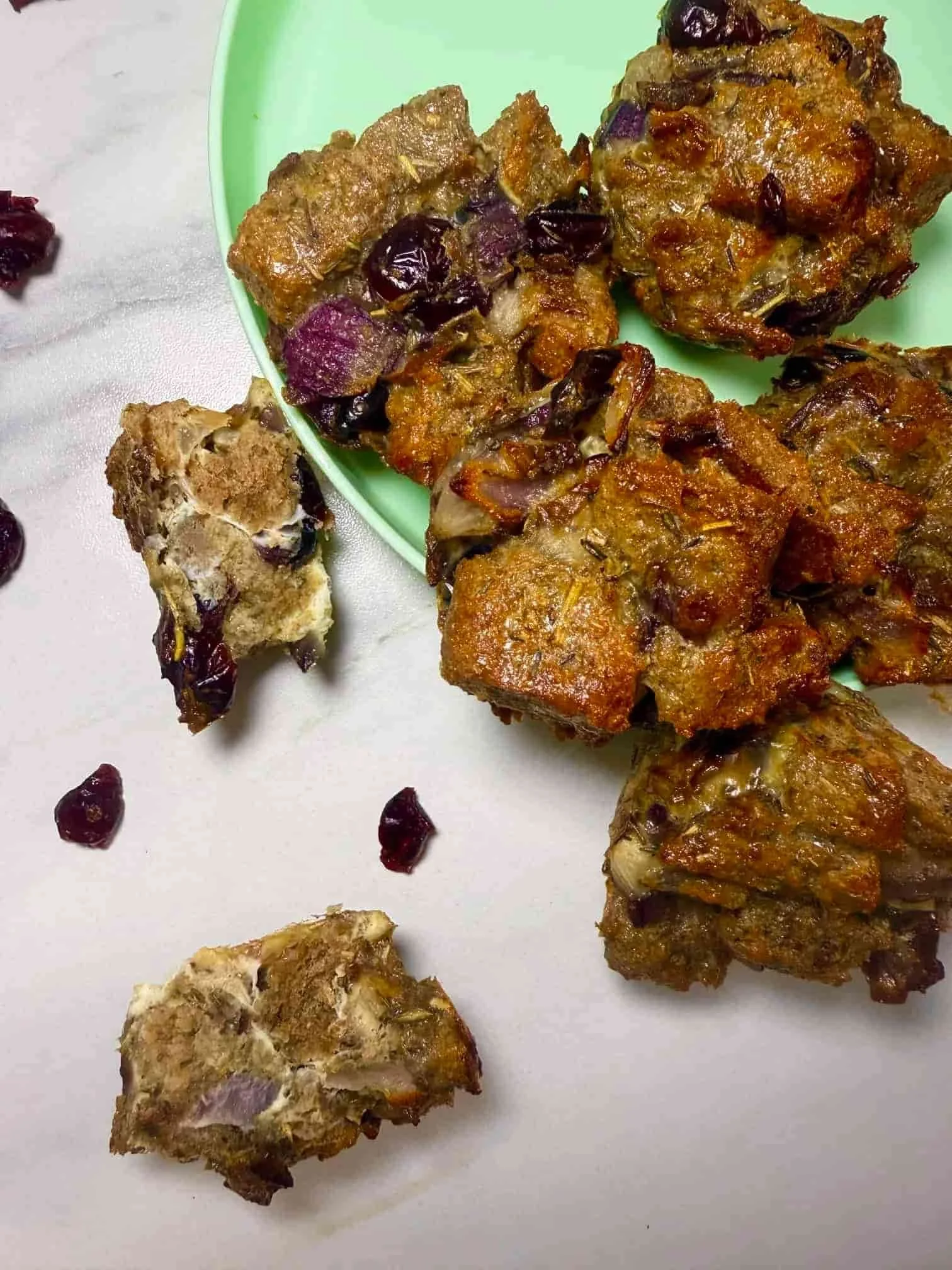
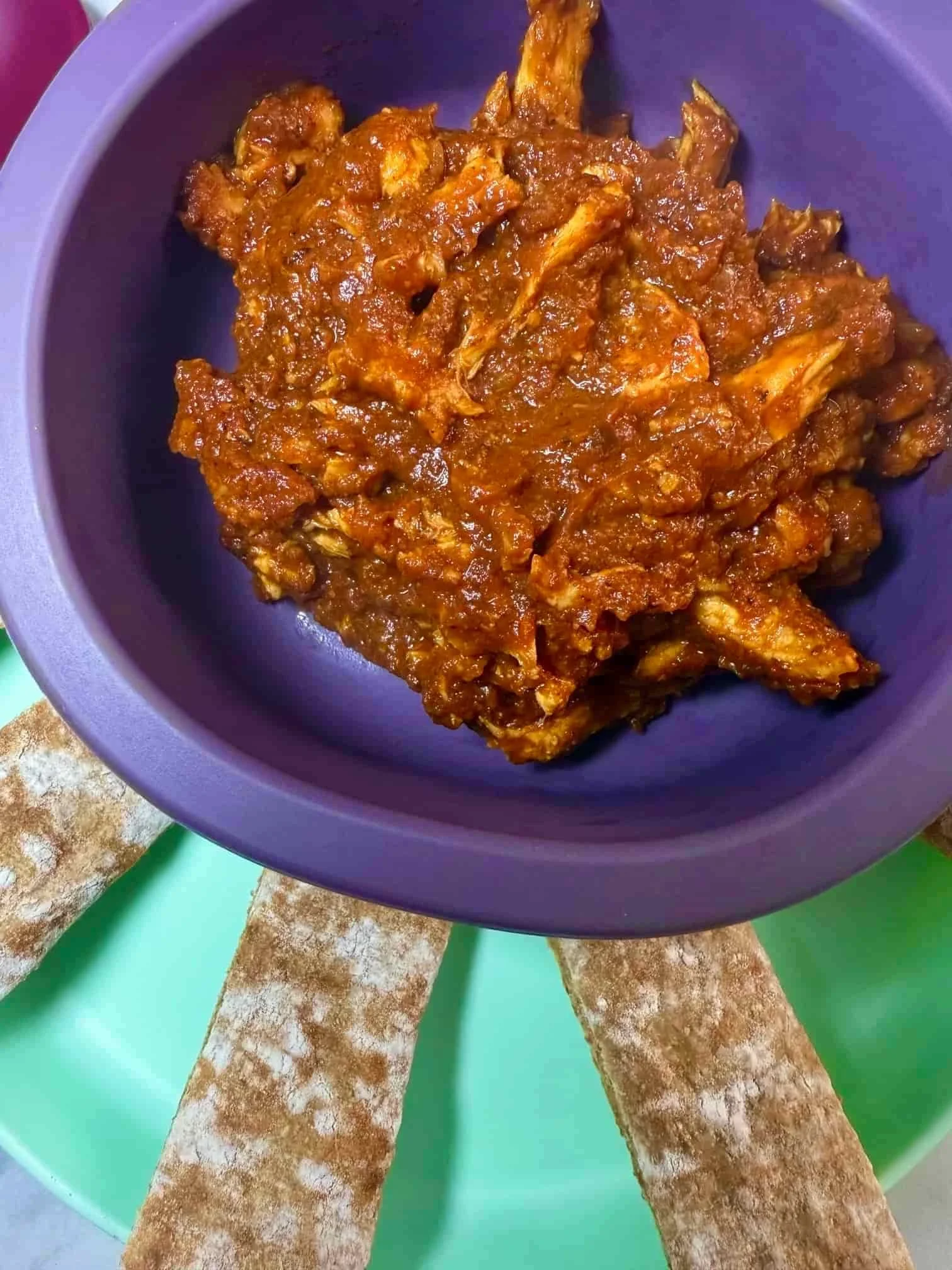
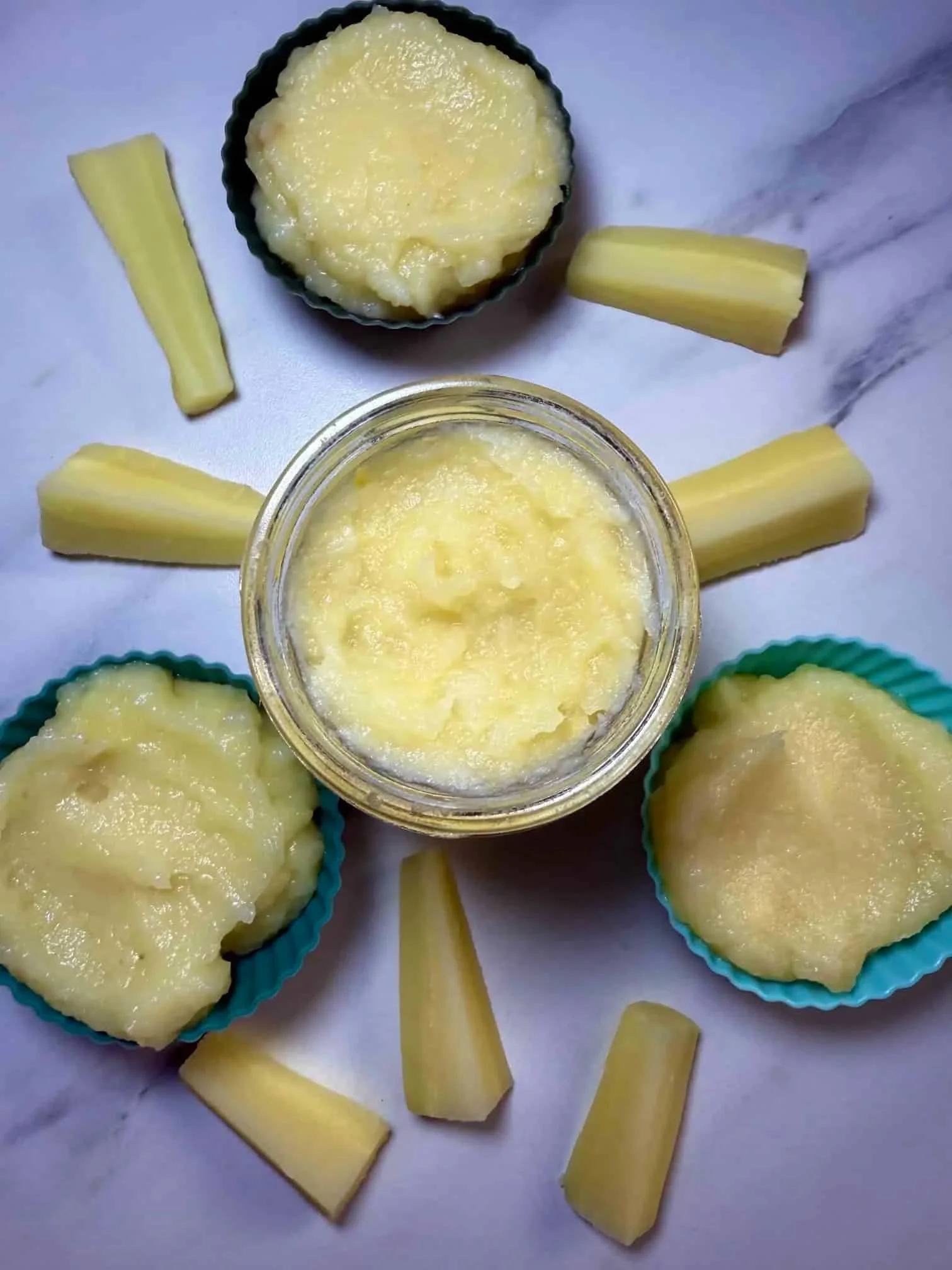




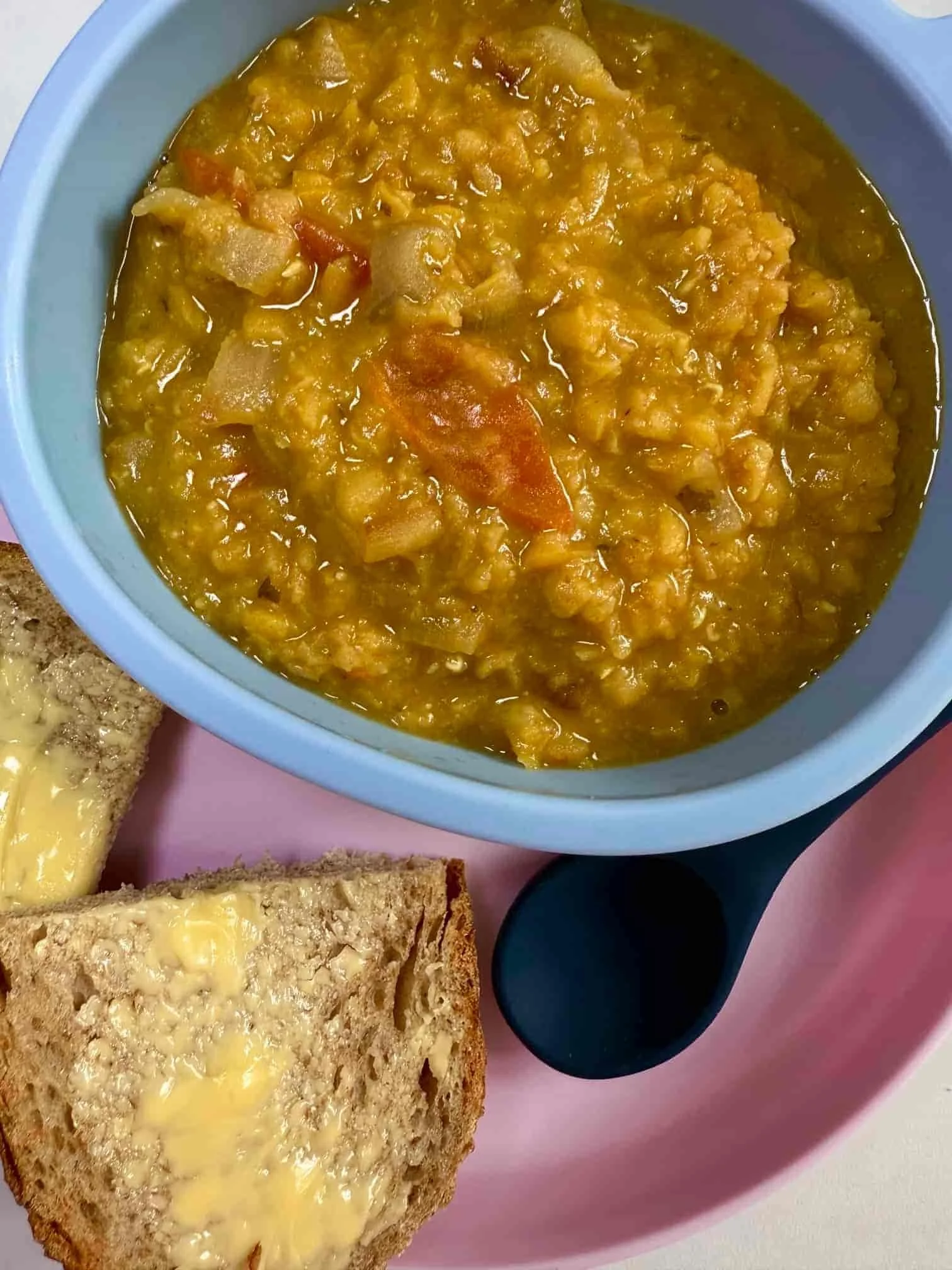




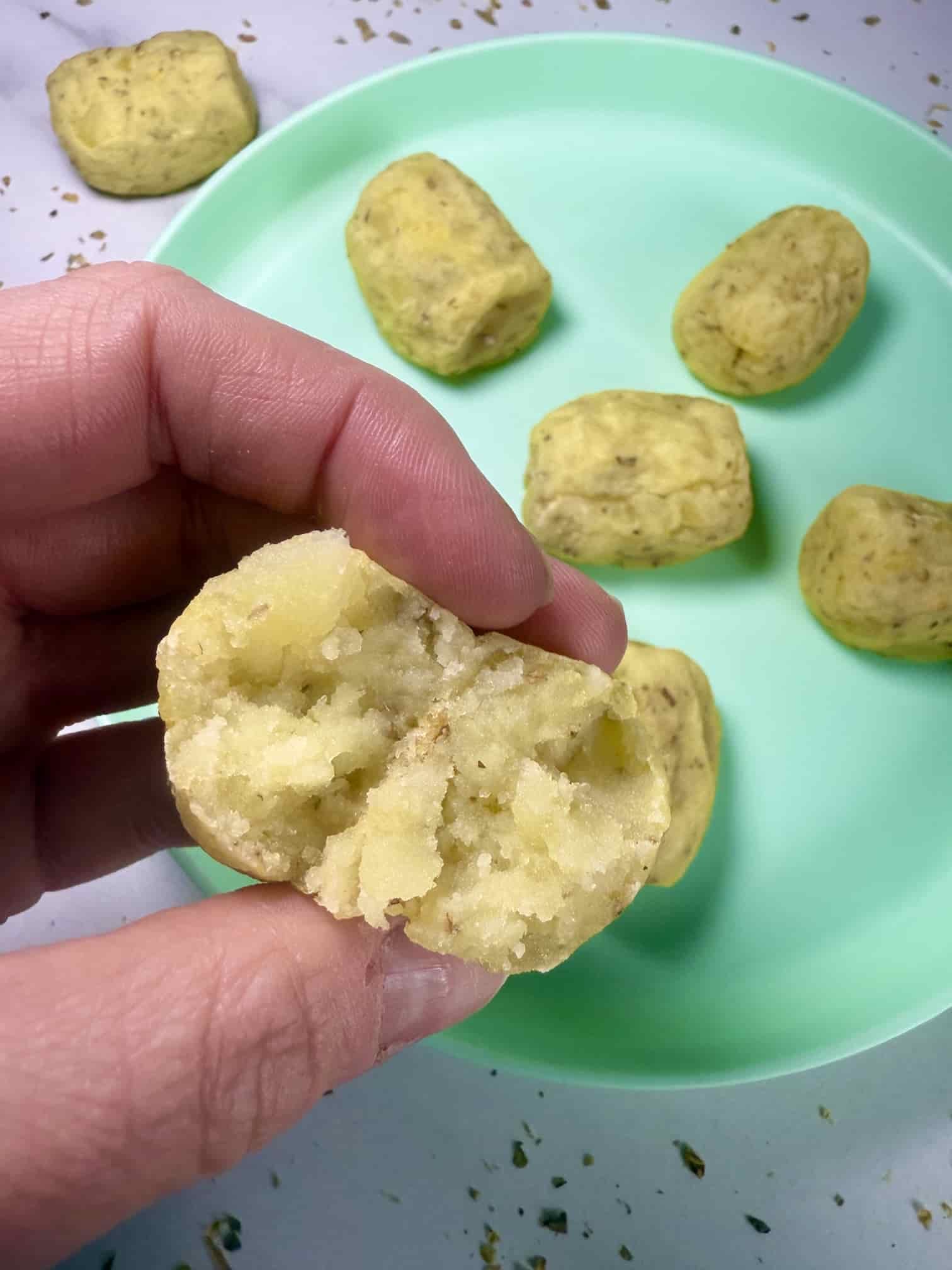

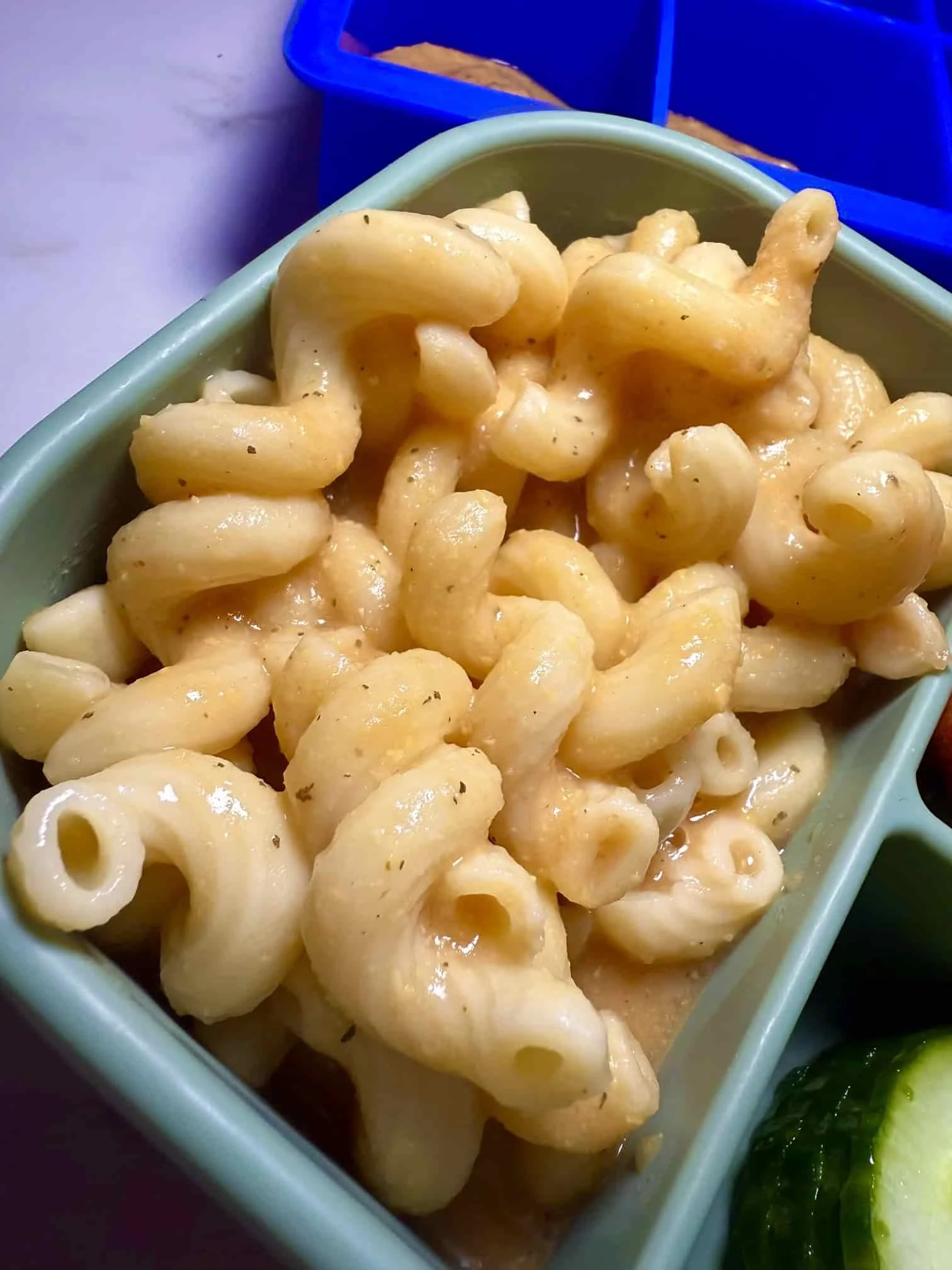

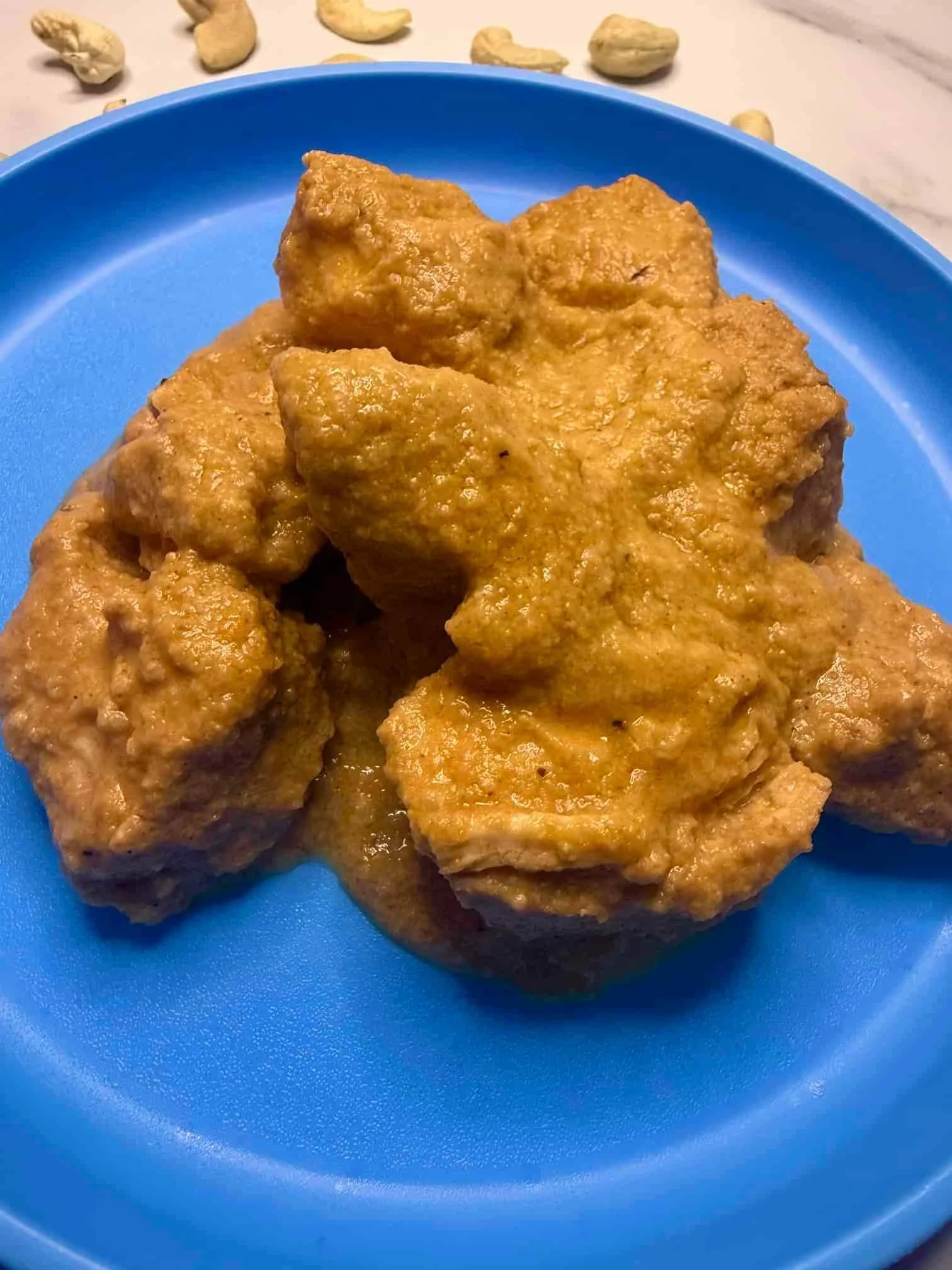

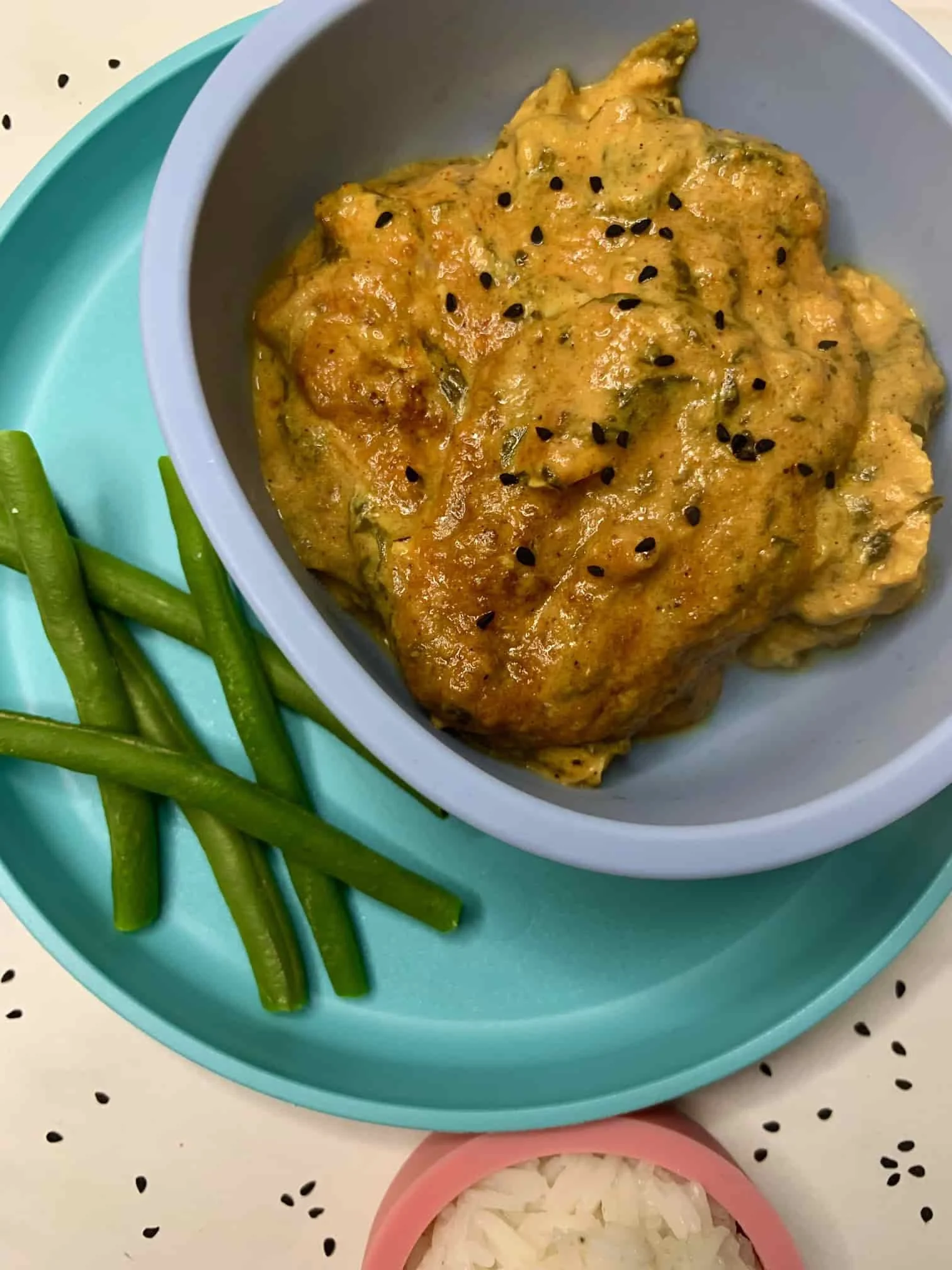





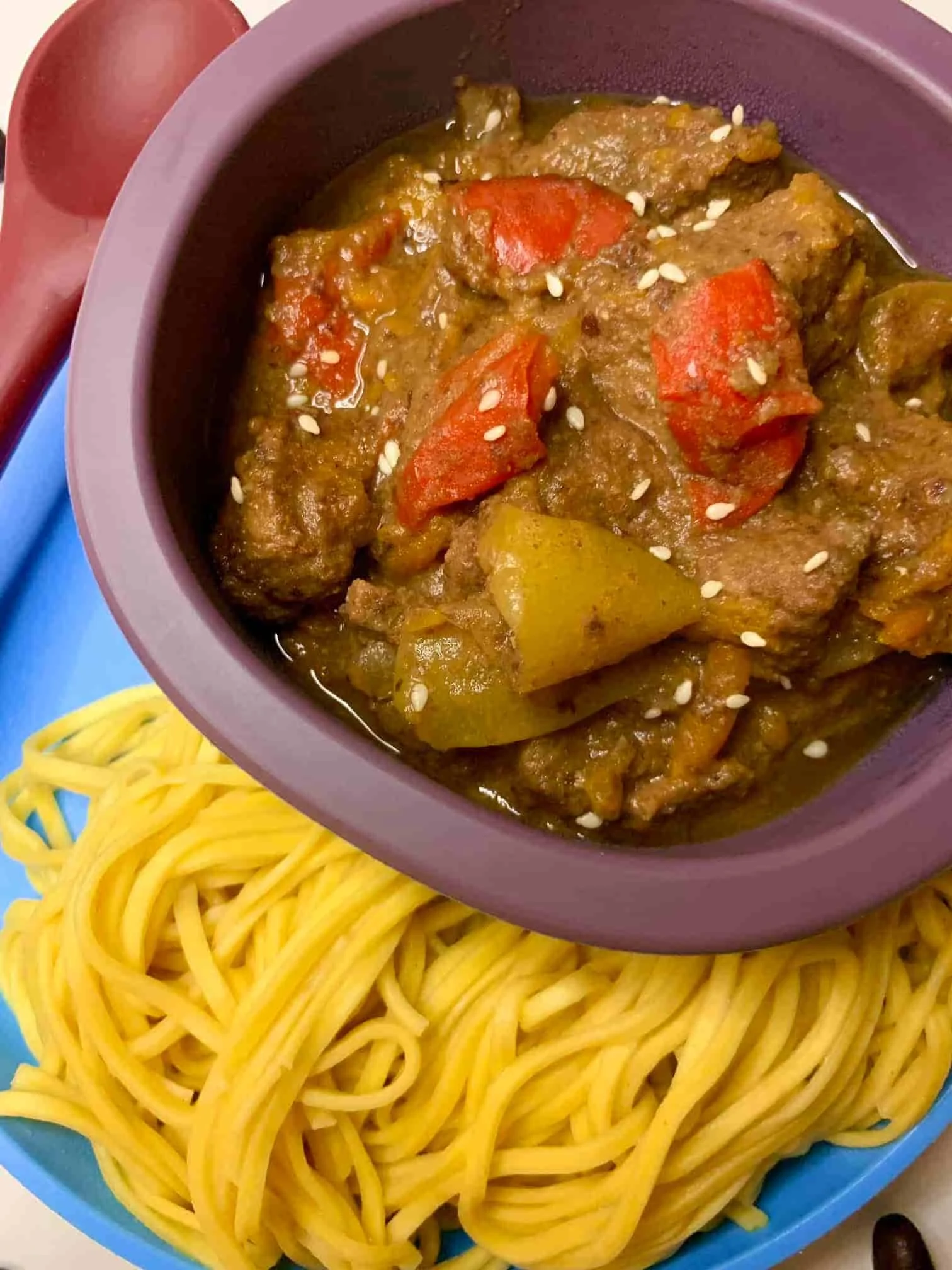
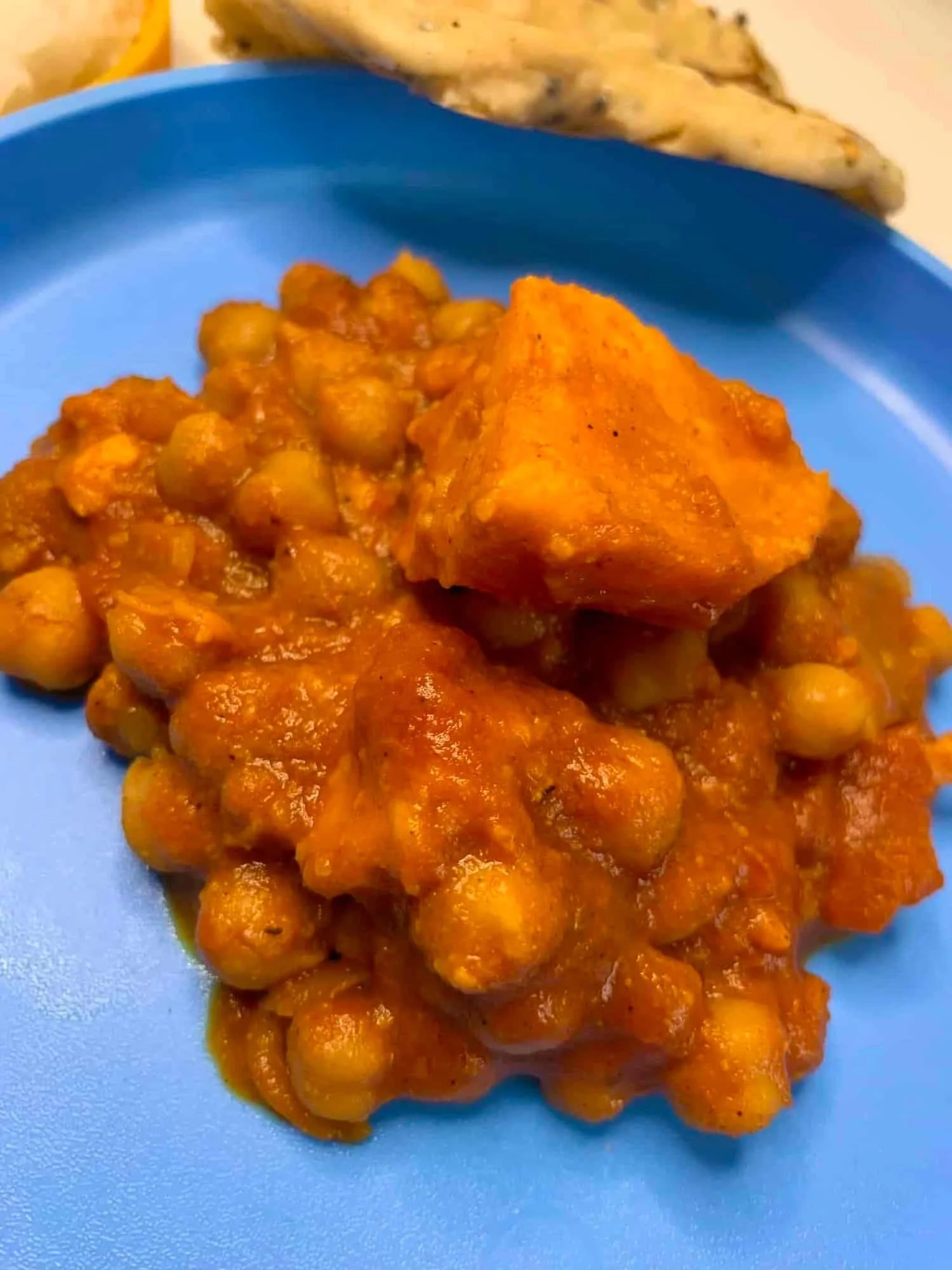

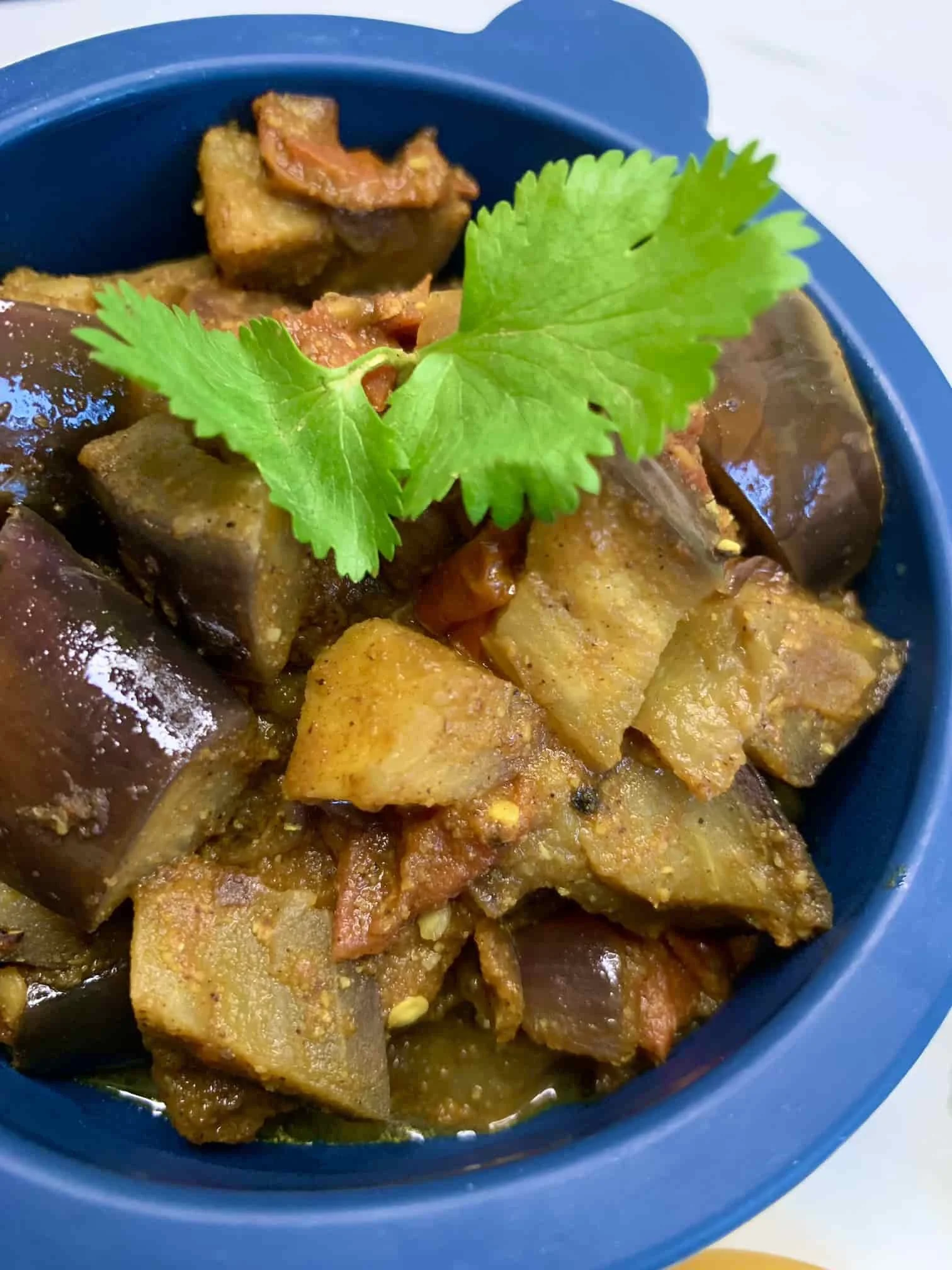
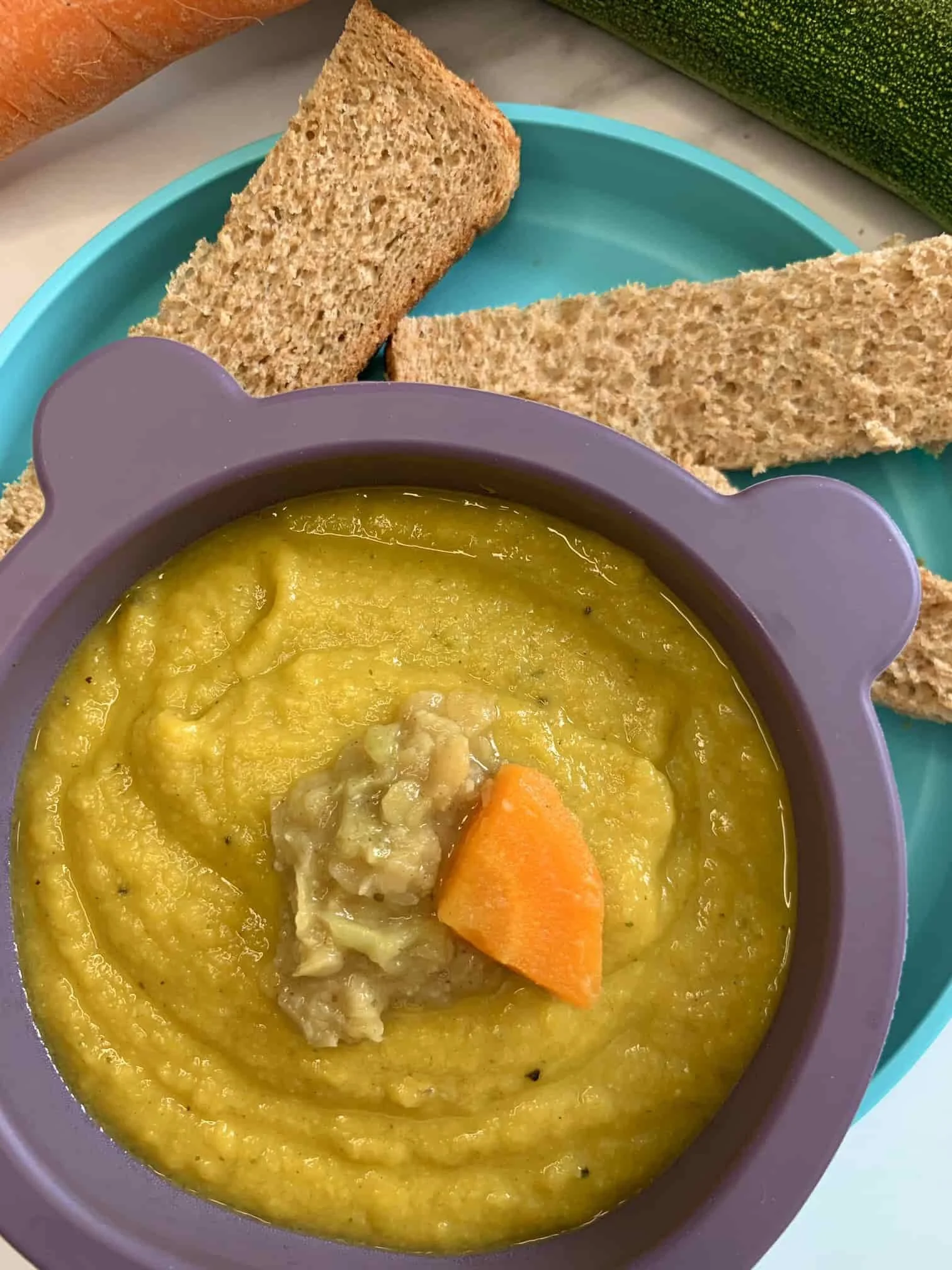

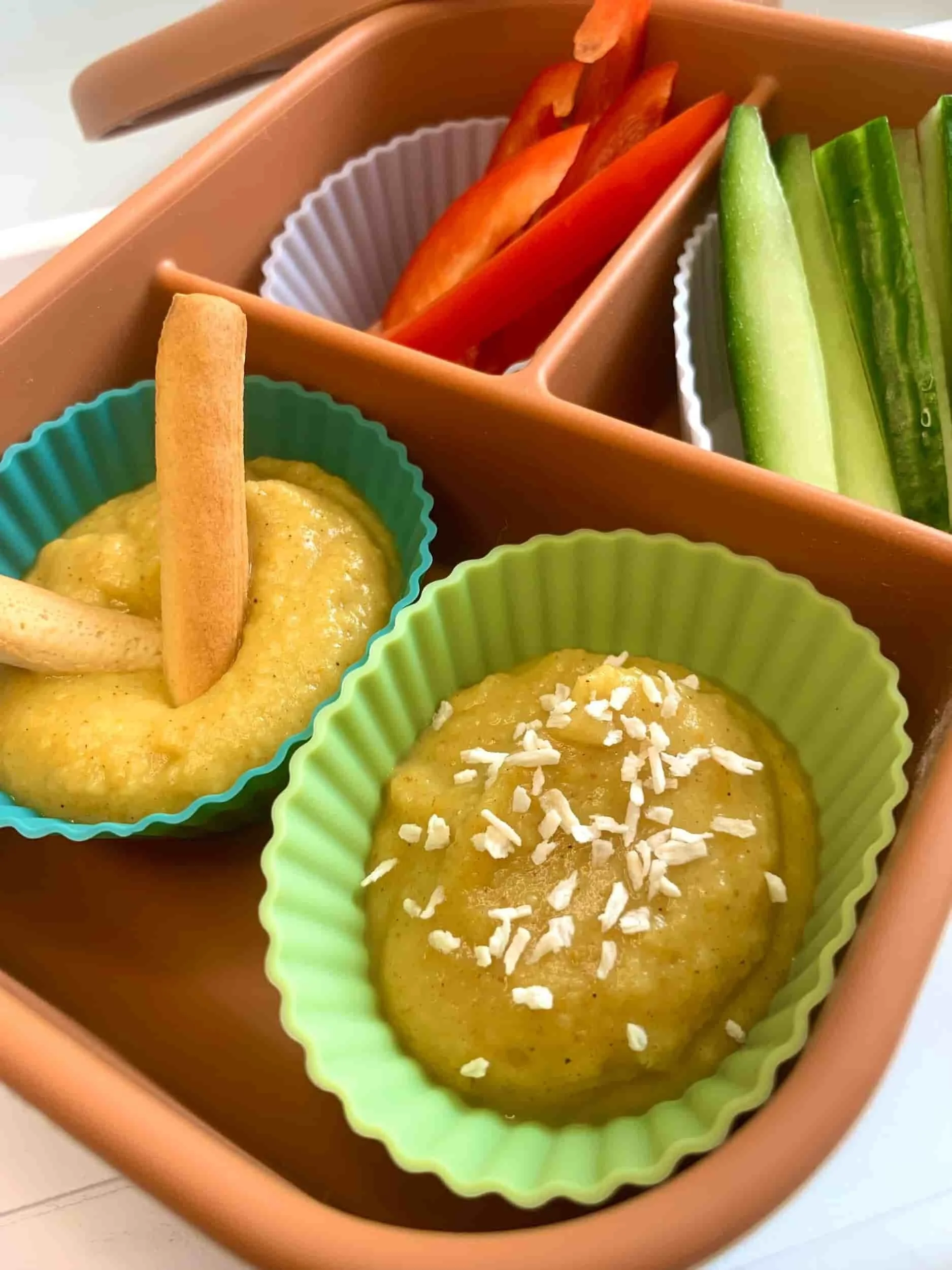
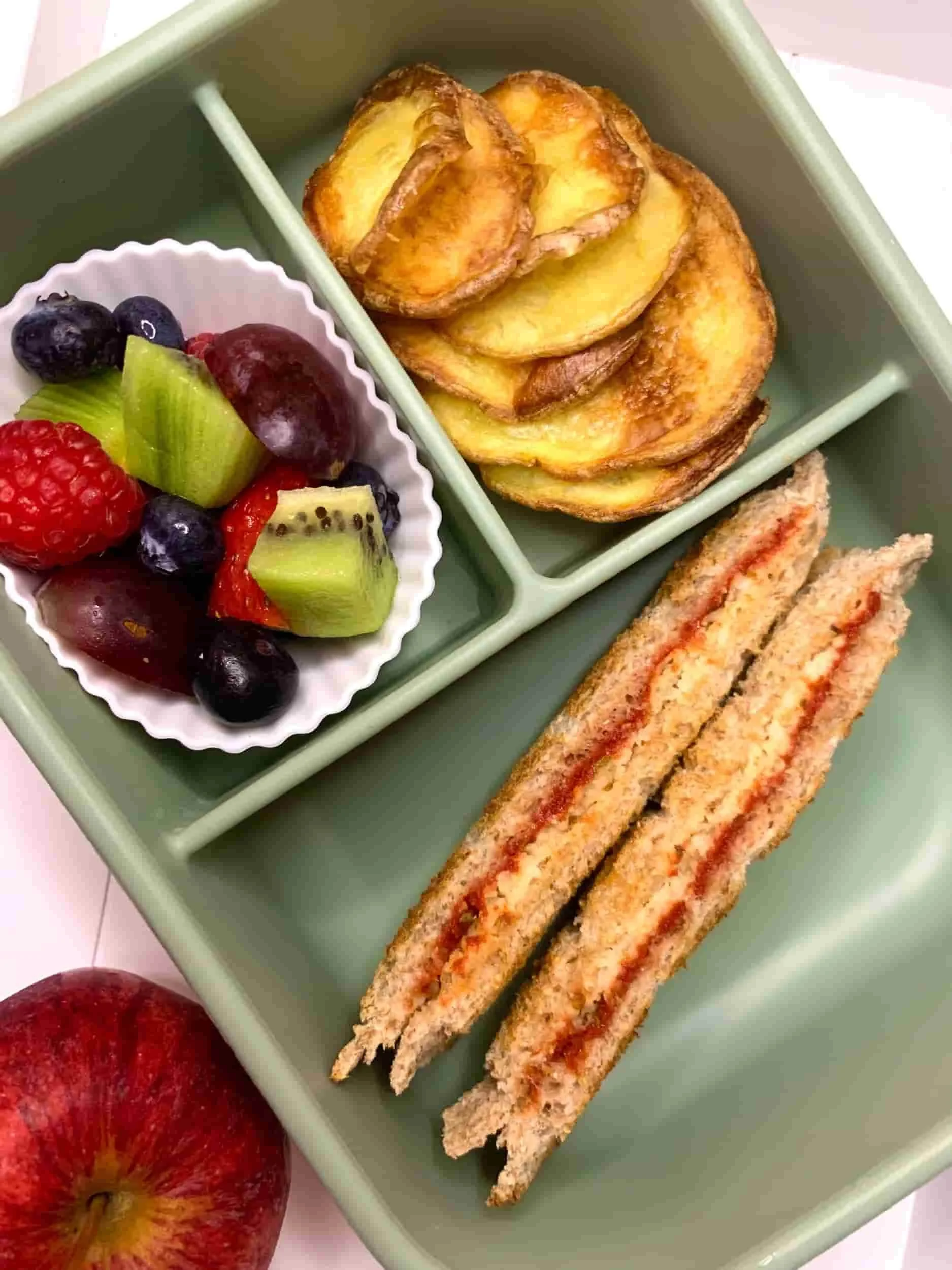
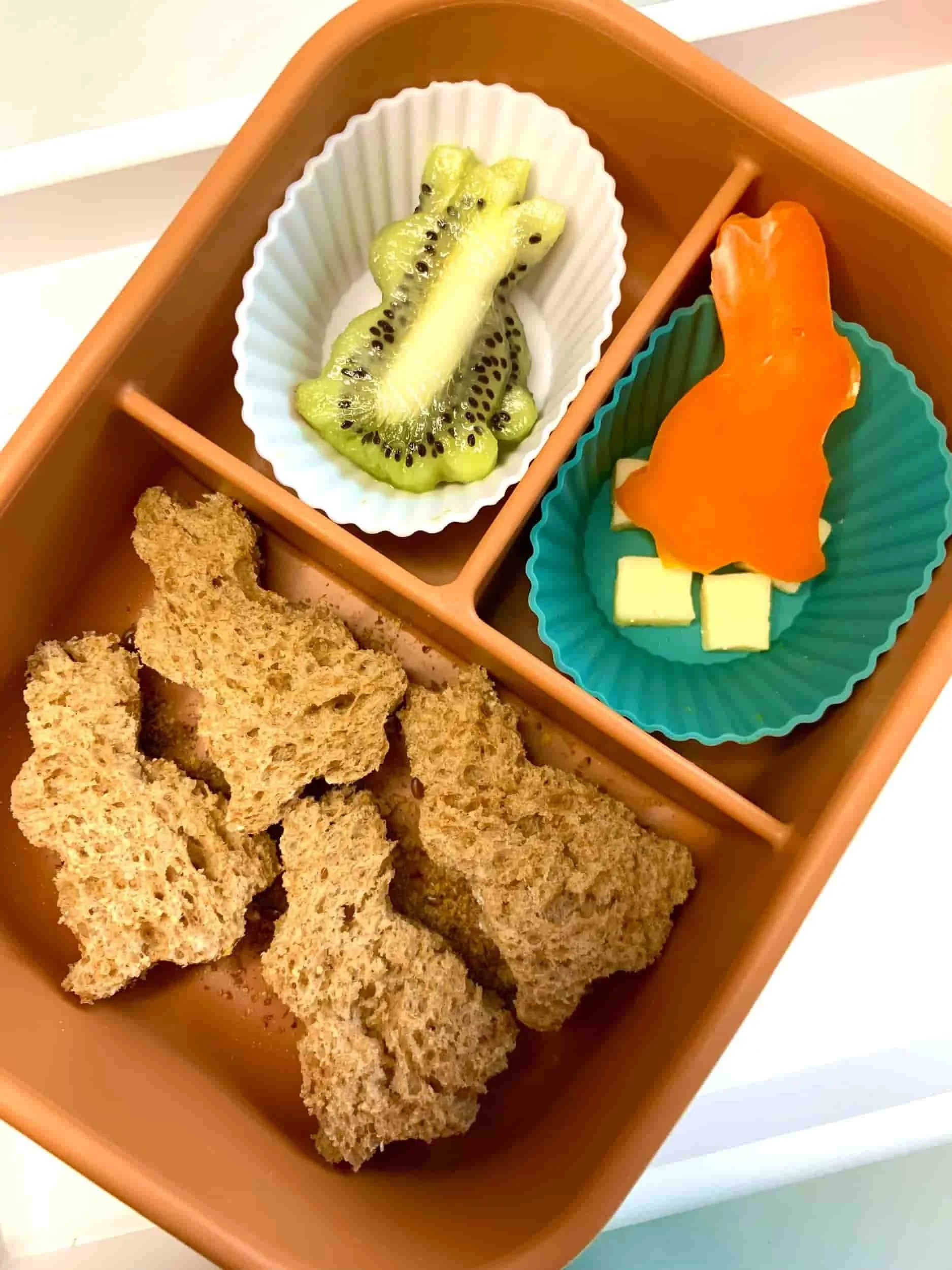

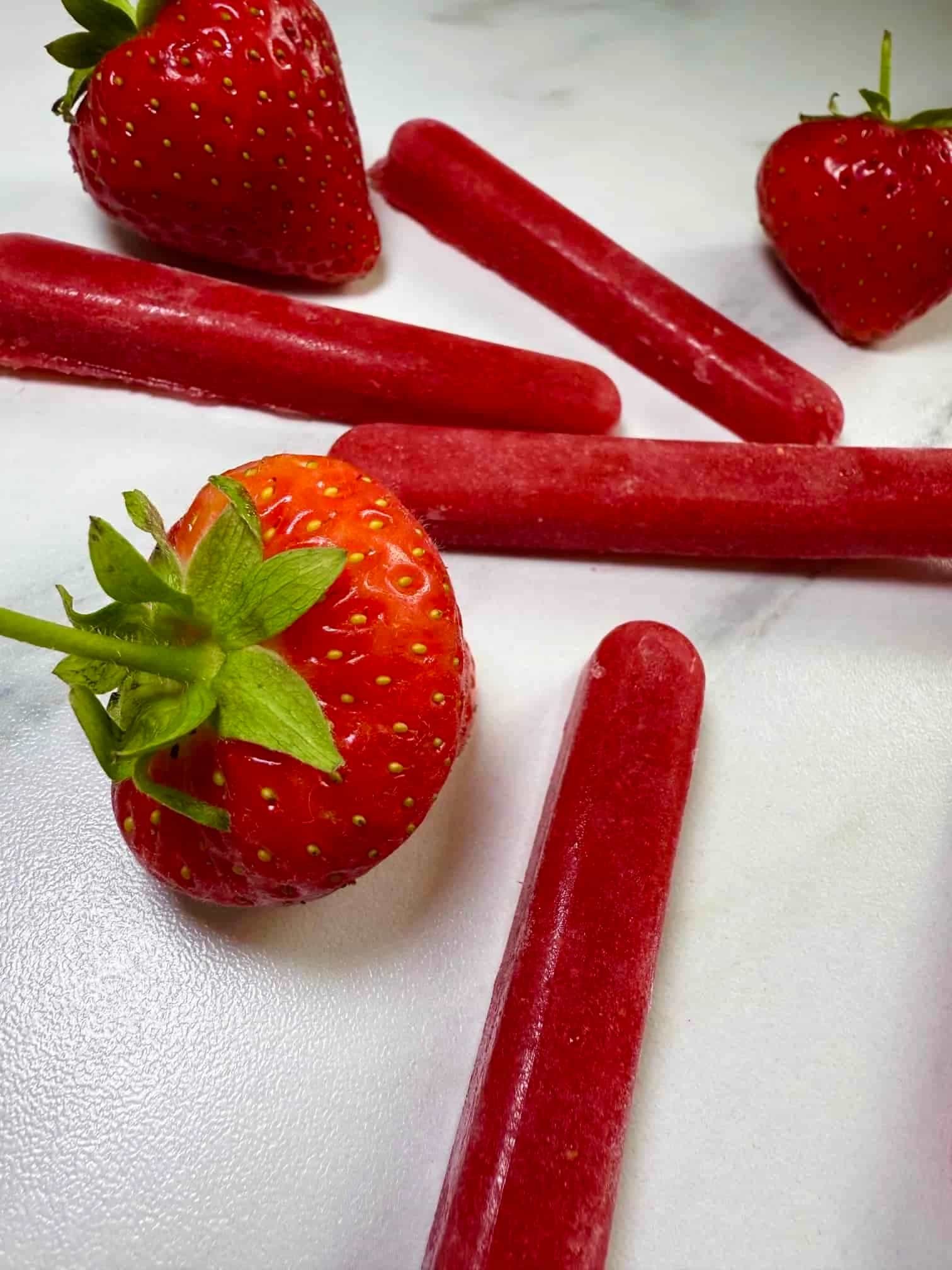
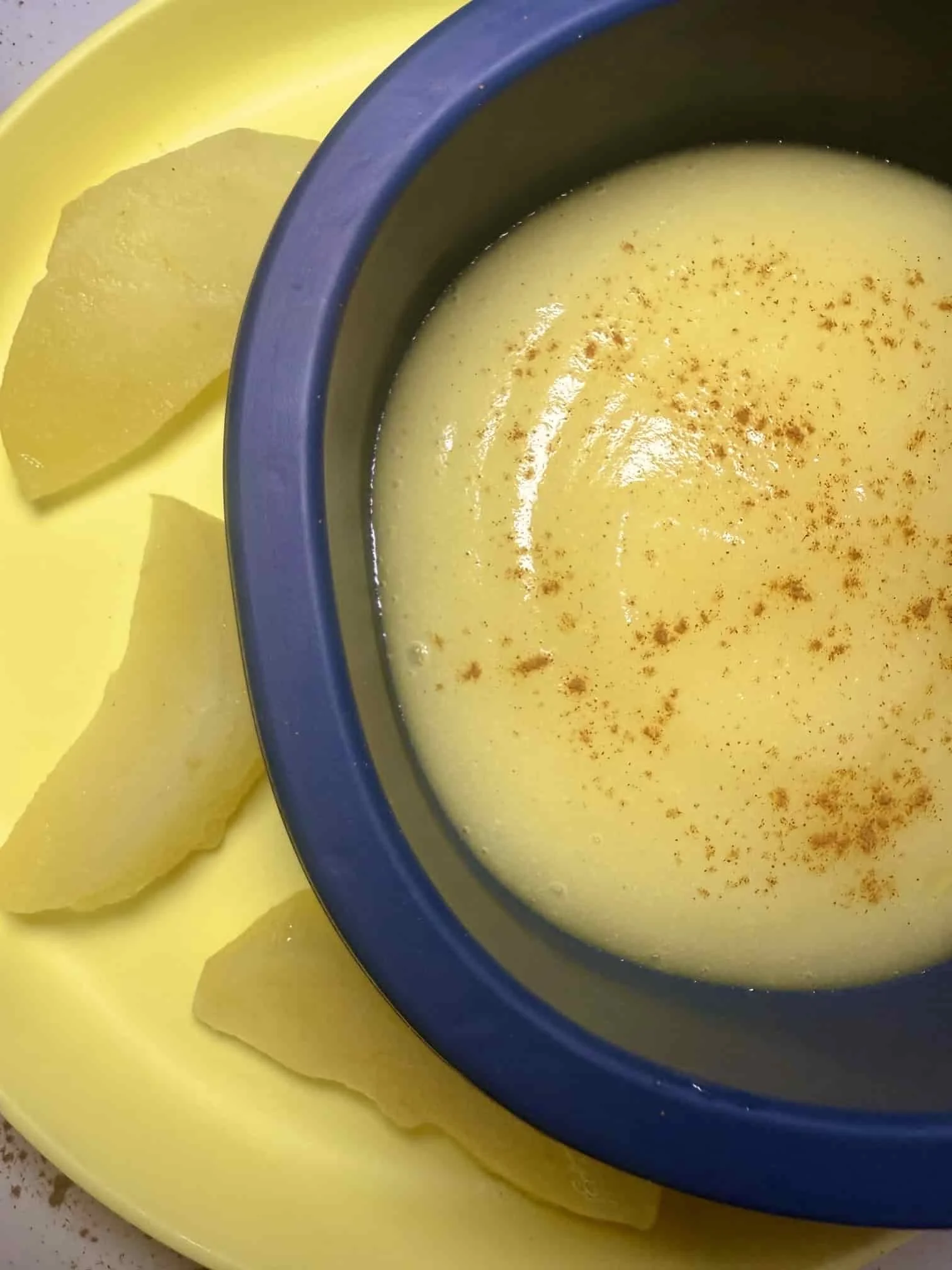
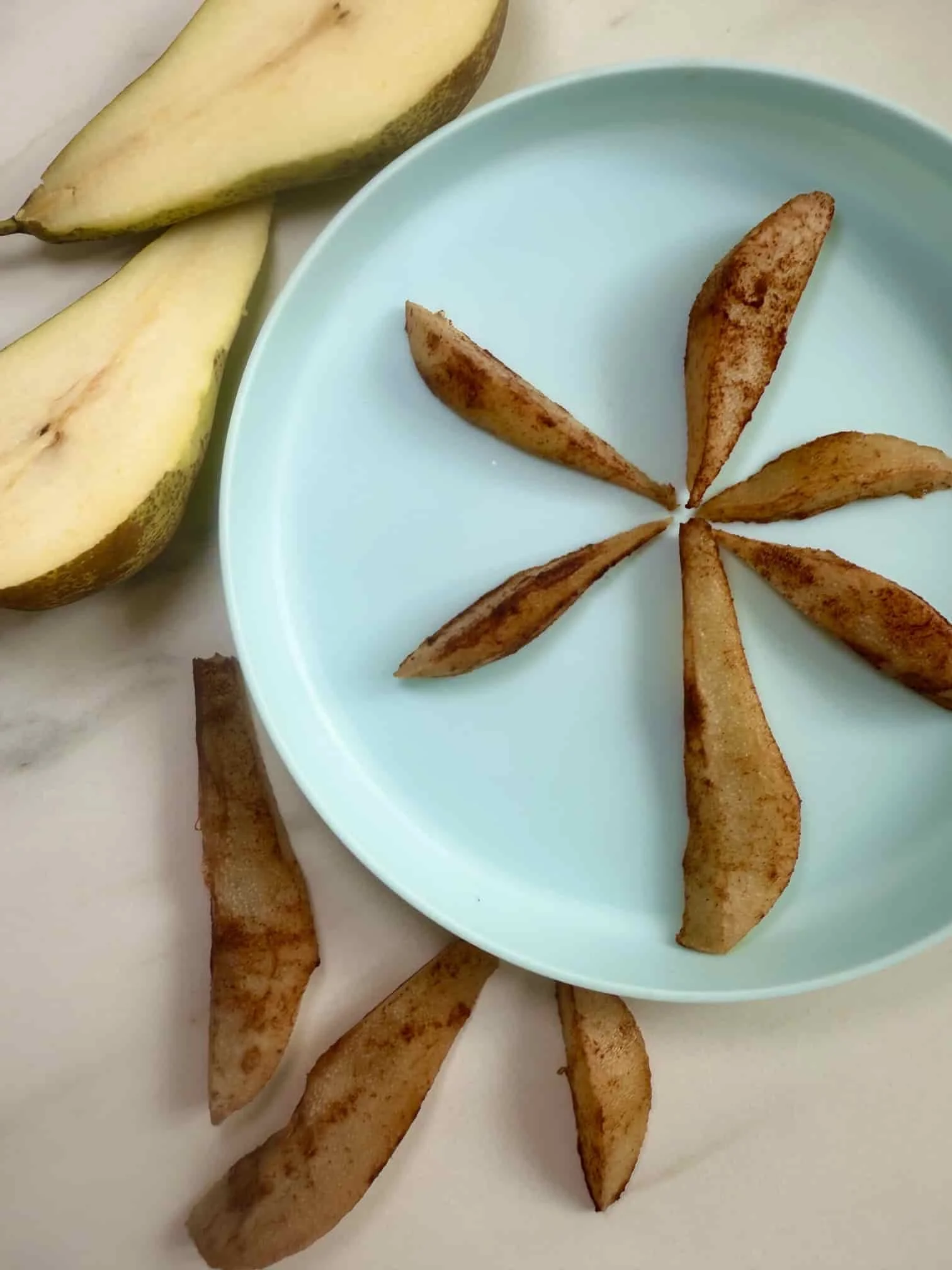















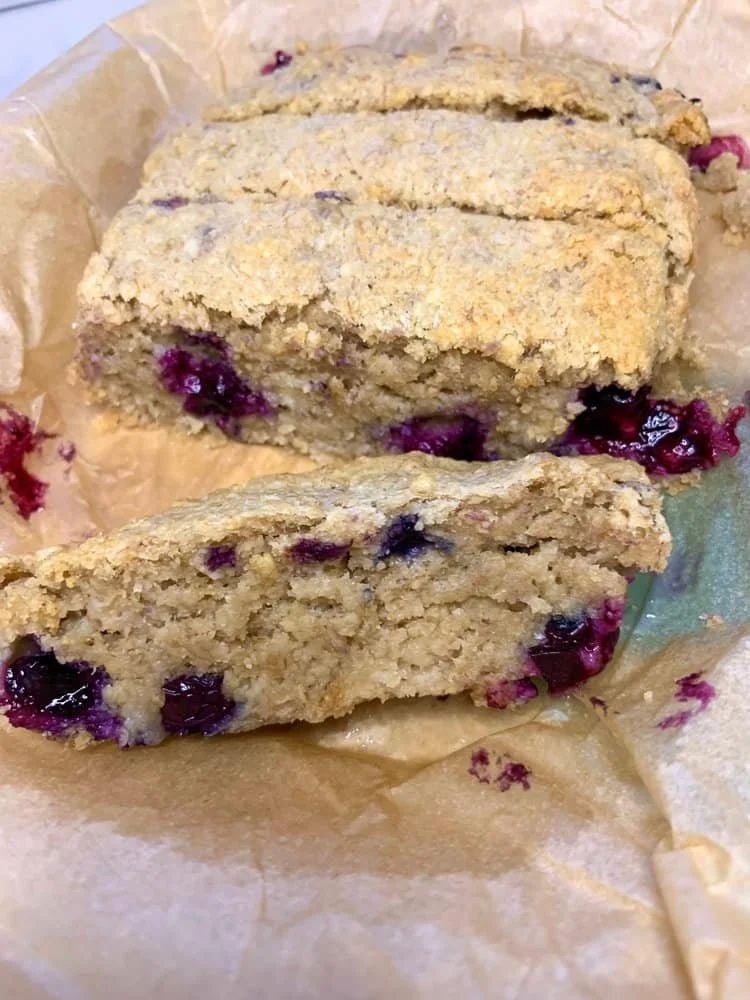






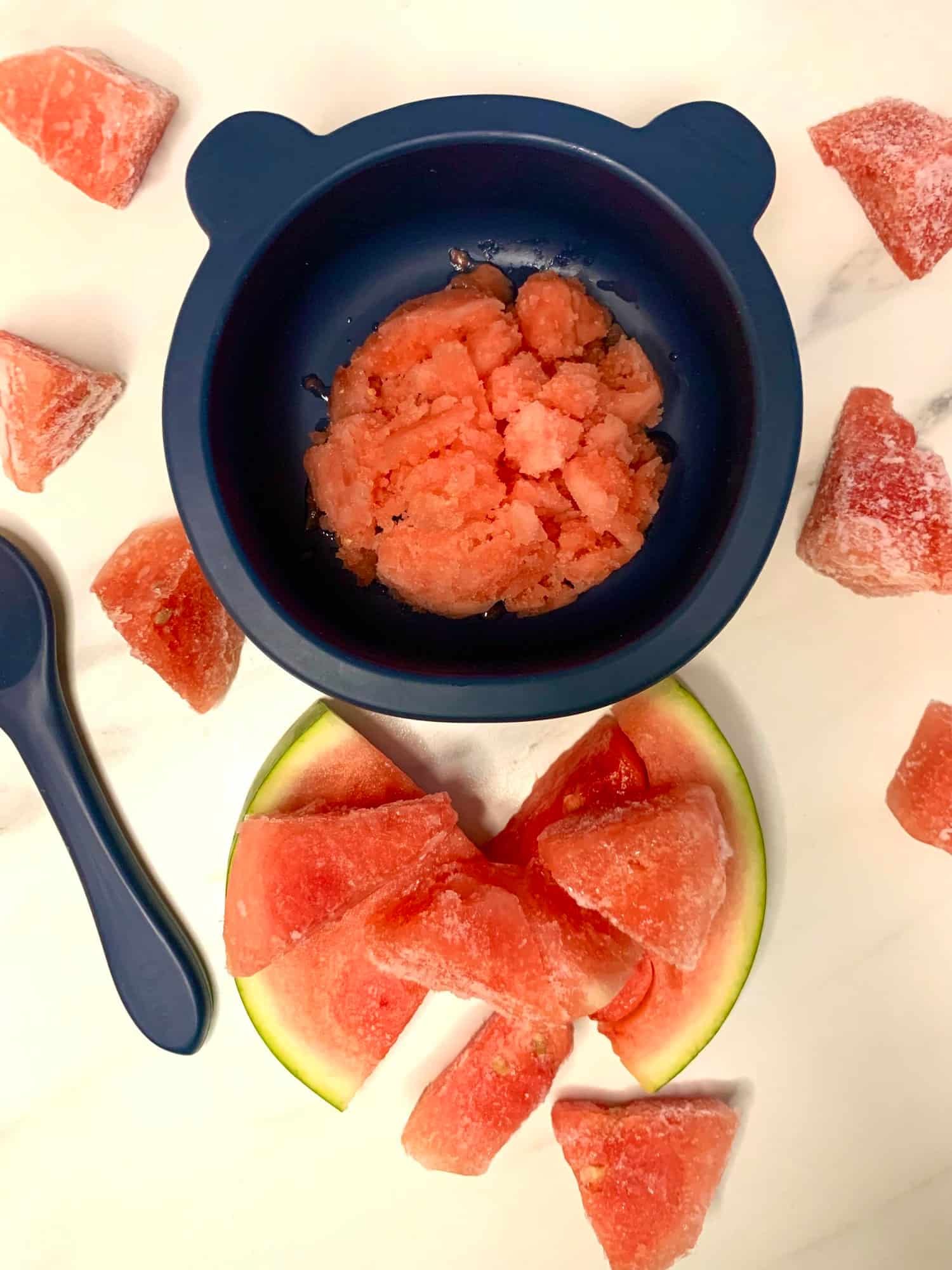






These are a delicious banana muffins recipe with an added nutritious “secret ingredient”. They are great as a meal on the go for little hands to hold.